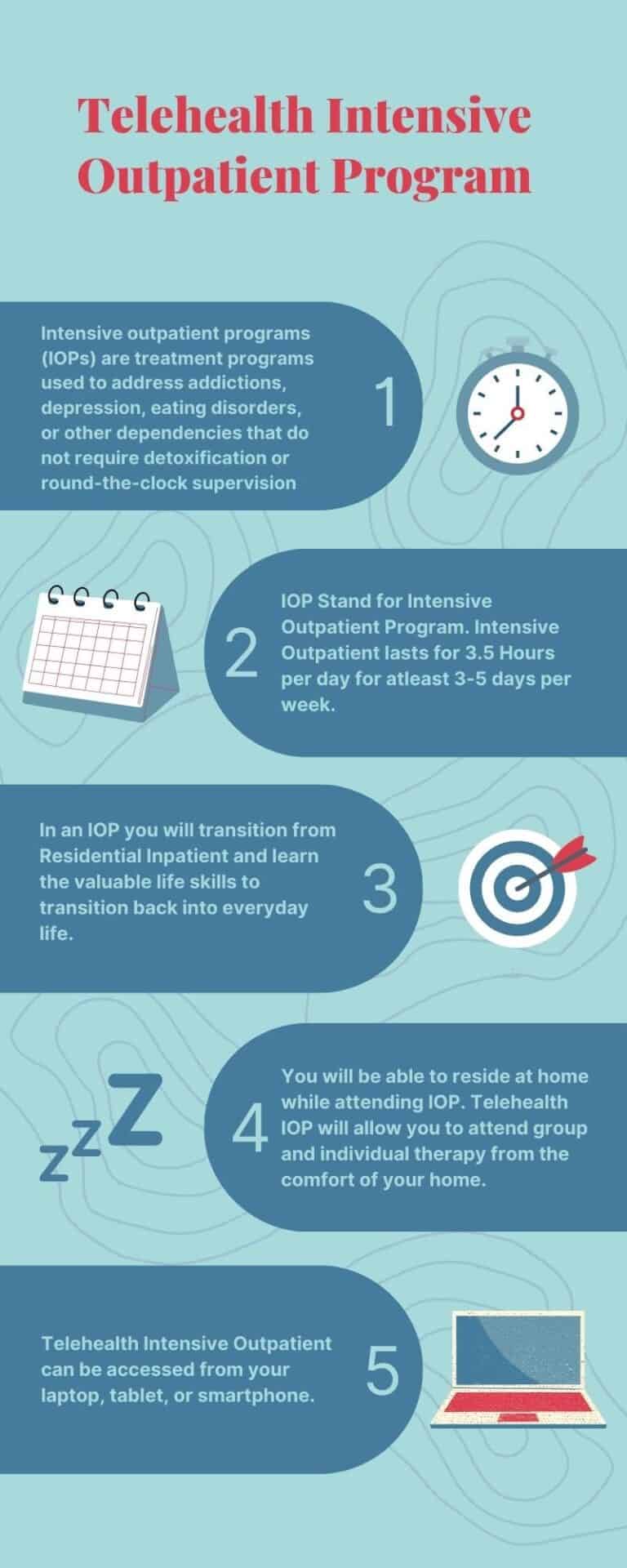Comprehensive Guide to Selecting the Right Intensive Outpatient Program (IOP).
Wiki Article
The Impact of Holistic Therapies on Mind-Body Recovery in an Intensive Outpatient Program
In the realm of intensive outpatient programs, the unification of alternative therapies has actually stimulated substantial rate of interest and debate among specialists in the area of mental health and wellness and health. The expedition of different approaches, such as yoga, reflection, acupuncture, and mindfulness methods, increases inquiries concerning their efficiency in advertising mind-body healing for people undergoing treatment. As the demand for detailed and integrative care grows, recognizing the effect of these all natural interventions within the structured structure of an intensive outpatient program ends up being progressively essential. The potential synergy in between traditional healing techniques and holistic techniques in promoting holistic wellness continues to be a subject ripe for exploration and analysis.Integrating Holistic Therapies in IOP
Integrating all natural treatments right into Intensive Outpatient Programs (IOP) can improve the general wellness and treatment end results of individuals looking for mental health support. Alternative treatments concentrate on treating the entire person, resolving not just the signs and symptoms but likewise the underlying sources of psychological wellness problems. By integrating practices such as yoga exercise, meditation, art therapy, and acupuncture right into IOP setups, clients can experience a much more comprehensive method to their therapy.
Benefits of Yoga and Meditation
By instilling IOP setups with holistic therapies like yoga exercise and reflection, people can access a variety of benefits that add to their mental and emotional wellness. Yoga exercise, with its concentrate on physical postures, breathing techniques, and mindfulness, can assist people lower anxiety, anxiousness, and clinical depression. The technique of yoga advertises leisure and boosts total state of mind by launching endorphins, the body's natural feel-good chemicals. Furthermore, yoga boosts self-awareness and promotes a feeling of inner peace, which can be specifically advantageous for people undergoing extensive outpatient treatment.
Acupuncture for Mind-Body Healing
Acupuncture, a conventional Chinese medicine method involving the insertion of slim needles into particular points on the body, provides an one-of-a-kind technique to mind-body recovery by targeting energy flow and advertising alternative wellness. This old technique is based on the idea of Qi, the body's essential energy, streaming along meridians or pathways. By boosting details acupoints, acupuncturists intend to restore the equilibrium of Qi, which is thought to find out this here be necessary for total wellness and health.
In the context of mind-body recovery, acupuncture has actually revealed encouraging outcomes in decreasing anxiety, stress and anxiety, and depression by managing the body's physiological feedback to these problems. Research study suggests that acupuncture can aid release endorphins, the body's natural painkillers, and regulate neurotransmitters to boost mood and emotional health. In addition, acupuncture sessions are usually accompanied by a feeling of relaxation and calm, which can contribute to an extra well balanced frame of mind.
Additionally, acupuncture is significantly being integrated into Western medicine methods to complement standard therapies for various psychological health and wellness problems, supplying an alternative approach that considers the interconnectedness of the body and mind in promoting recovery and health. Intensive Outpatient Program (IOP).
Mindfulness Techniques in Treatment
Expanding on the world of holistic treatments, top article mindfulness techniques play a crucial function in therapy by cultivating a deeper connection in between the body and mind for general well-being. Mindfulness, rooted in ancient contemplative techniques, involves paying focus to the present minute non-judgmentally. In the context of an extensive outpatient program, incorporating mindfulness methods can help individuals create self-awareness, manage emotions, and reduce tension levels. Via mindfulness reflection, people can cultivate an enhanced feeling of understanding of their thoughts, feelings, and physical feelings, promoting a higher understanding of the interconnectedness in between physical and mental health.Mindfulness techniques can additionally aid in damaging the cycle of negative idea patterns and actions that might add to mental wellness obstacles. By encouraging individuals to observe their ideas without add-on or judgment, mindfulness fosters a feeling of acceptance and empathy towards oneself (Intensive Outpatient Program (IOP)). This practice can lead i loved this to improved psychological durability, improved coping mechanisms, and a greater feeling of internal peace. Eventually, integrating mindfulness methods right into therapy plans can equip people to proactively take part in their healing trip and advertise all natural wellness.

Examining Alternative Treatments' Efficacy

By incorporating measurable information with qualitative comments, scientists can obtain an extra all natural understanding of the efficiency of these treatments in promoting mind-body healing within an intensive outpatient program. Such examinations are vital for educating evidence-based methods and maximizing alternative therapy strategies for individuals seeking thorough health.
Verdict
Finally, the integration of holistic treatments such as yoga, reflection, acupuncture, and mindfulness methods in an intensive outpatient program can have a substantial influence on mind-body recovery. These therapies offer a more extensive strategy to therapy by dealing with the physical, emotional, and spiritual elements of a person's well-being - Intensive Outpatient Program (IOP). Evaluating the efficacy of these alternative interventions is essential in comprehending their prospective benefits in enhancing the total recovery procedure for individuals in an outpatient settingReport this wiki page